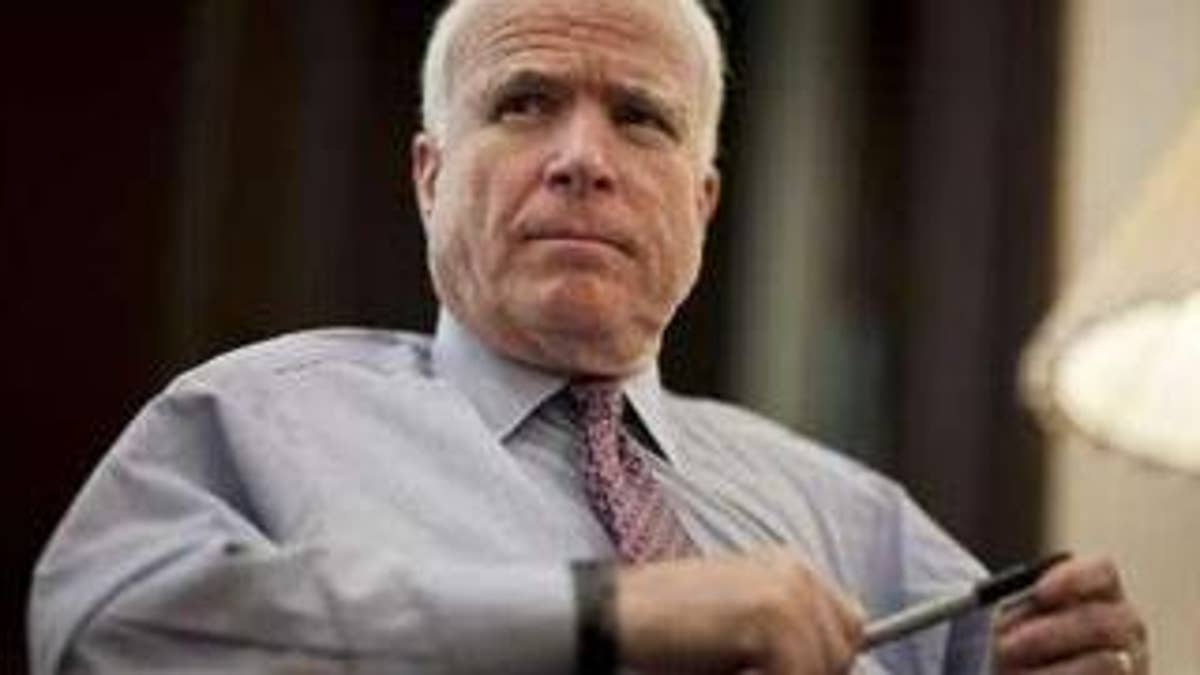
Republicans who want to support President Obama's war strategy in Afghanistan expressed concern Sunday that the president could miss a key opportunity to gain the upper hand on the growing insurgency by waiting too long to grant a request for thousands for more U.S. troops.
As Democrats defended Obama's decision to take his time and carefully consider conflicting strategy proposals from top advisers, Republican senators said the clock is ticking -- with allied forces continuing to suffer casualties in part because they lack reinforcements.
"Republicans want very much to support the president's decision," Senate Republican Whip Jon Kyl, R-Ariz., told "Fox News Sunday." But he cited Gen. Stanley McChrystal's own warning that U.S. and NATO forces may only have about one year before the insurgency's momentum becomes irreversible.
"It's been more than two months since the recommendation went to the president. And Gen. McChrystal is talking about a 12-month time frame," Kyl said. "So clearly time is of the essence here."
Sen. Orrin Hatch, R-Utah, told CNN's "State of the Union" that the president is taking "too long" to respond to McChrystal.
Sen. John McCain, R-Ariz., also called for an end to the delay.
"The sooner the decision is made, the sooner we get people over there and are able to implement the strategy that will succeed," he told CBS' "Face the Nation." "Every day we delay will be a delay in this strategy succeeding."
Top officials like Sen. John Kerry, D-Mass., and White House Chief of Staff Rahm Emanuel have suggested that U.S. strategy hinges on the outcome of next month's presidential runoff election and on political stability in the country. But Republicans on Sunday argued that a troop-heavy counterinsurgency strategy, as advocated by McChrystal, is already based on the assumption that the government is unstable.
"When you're talking about a country like Afghanistan, you don't have a perfect government," Kyl said. "That's why you have to have a counterinsurgency policy. The populace can't be protected by their own government."
He expressed support for a "hybrid" strategy that Obama reportedly is considering. Such a strategy would demand more troops but also focus on the use of drones and special operations forces to take out top Al Qaeda members.
The Republicans, though, declined to back up former Vice President Dick Cheney's accusation last week that the president is "dithering."
"I wouldn't use that language," McCain said.
Senate Democrats rejected Cheney's criticism and said the president is in his right to take his time reaching a decision that has such severe implications.
"I thought that the comments of the former vice president were totally out of bounds," Sen. Carl Levin, D-Mich., chairman of the Senate Armed Services Committee, told "Fox News Sunday." "President Bush took three months in considering whether or not to surge troops in Iraq. ... No one pressured President Bush at that time to reach a decision more quickly than he felt he could."
Sen. Russ Feingold, D-Wis., urged Obama to be even more cautious.
"It's time to start thinking about bringing troops out of Afghanistan and reducing our commitment there," he told "Face the Nation." He said that going after the Taliban in Afghanistan is secondary to going after Al Qaeda in Pakistan and threatened to oppose any decision to send over more U.S. forces.




